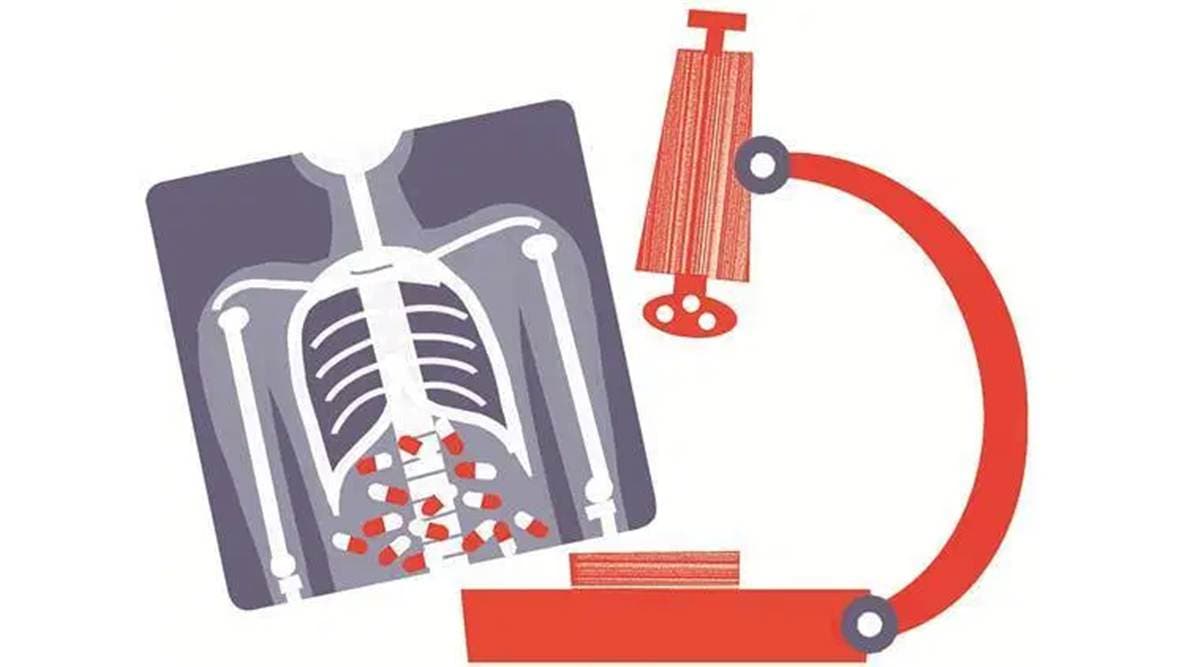 We need to aggressively scale up testing with innovative strategies such as active surveillance, bidirectional screening for respiratory tract infections using the most sensitive molecular diagnostics, and contact tracing.
We need to aggressively scale up testing with innovative strategies such as active surveillance, bidirectional screening for respiratory tract infections using the most sensitive molecular diagnostics, and contact tracing. Covid-19 and tuberculosis (TB) are remarkably similar. They are transmissible, airborne infections. Both are more likely to spread in crowded settings, and harm people with immuno-compromising conditions.
In the first year of the Covid-19 pandemic, 1.8 million people were reported to have succumbed to the virus. In the decade between 2010-20, 1.5-2 million individuals died every year because of tuberculosis. Yet, we seldom see the word “pandemic” used in the context of TB. The amount of money spent by governments for research and development in the first 11 months of the Covid-19 pandemic was 162 times the corresponding amount spent on TB in 2020. The difference in responses to the two pandemics can only be explained by the differences in the profiles of those who get infected. TB disproportionately affects people in low-income nations, the poor and the vulnerable.
The increased burden on healthcare to manage Covid has led to a serious setback in TB control. Before the Covid pandemic, it was assumed that a third of all individuals with TB were undiagnosed, and were likely spreading the disease in their communities. In the past two years, case detection has dropped, suggesting that the proportion of such “missing cases” is likely to have increased. Lockdowns, the fear of healthcare establishments and the stigma associated with respiratory symptoms have possibly contributed to the increase in “missing cases”. For those diagnosed, access to medicines has not always been easy. The redirection of human resources within the health system during the three Covid waves has left TB facilities understaffed leading to poorer quality and delayed care.
Studies have suggested that Covid may trigger pathways leading to reactivation of dormant TB bacilli. Historically, turmoil in society (such as wars), food insecurity, poverty and malnutrition have resulted in surges in the incidence of TB. We could, therefore, witness an increase in TB in the coming years.
On World TB day, we need to ask how best we can leverage the lessons learnt from Covid-19 to help gain a new momentum in TB control. We need to focus on the epidemiological triad: Agent, host and the environment.
Test, treat and track has been a strategy successfully employed for Covid. We need to aggressively scale up testing with innovative strategies such as active surveillance, bidirectional screening for respiratory tract infections using the most sensitive molecular diagnostics, and contact tracing. The biggest victory against Covid has been the speed with which vaccines were developed, scaled up and deployed. We need to replicate the same for tuberculosis, lobbying for funding from governments and industry to develop a successful vaccine for TB.
Malnutrition, poverty and immuno-compromising conditions such as diabetes are some of the factors strongly associated with TB. Over a hundred million Indians smoke tobacco — a strong risk factor for both developing TB, and dying from it. Social security programmes that work towards prevention of modifiable risk factors would possibly pay richer dividends than an exclusive focus on “medicalising” the disease.
Environmental factors which have been neglected include ventilation of indoor spaces, educating individuals to avoid crowds when possible, and to encourage voluntary masking, especially in ill-ventilated and closed spaces. We must not lose this opportunity to invest in these measures, at a time when the sensitisation to their need is high.
Covid has been a stellar example of how investments and actions can be swift, and public education can transform behaviour. Similar aspirations for TB can help turn this crisis into an opportunity to re-imagine our overburdened and underfunded systems. We need to actively engage the private sector, build bridges and partnerships as we did in the case of Covid.
All this, however, is easier said than done. India needs to triple the funding not just for TB but for health, nutrition and preventive services. The country needs to invest in state-of-the-art technologies, build capacity, expand its health workforce and strengthen its primary care facilities. It also needs to consider telemedicine and remote support as important aspects of health services. Most importantly, before embarking on any of this, it needs to build an open and collaborative forum where all stakeholders, especially affected communities and independent experts, take a lead role.
We have ignored TB for too long. It’s time we acknowledge the magnitude of the disease, and work harder at offering individuals equitable healthcare access and resources that the disease warrants.
Pinto is consultant pulmonologist at Hinduja Hospital, Mumbai. Mehra is a public health expert
- The Indian Express website has been rated GREEN for its credibility and trustworthiness by Newsguard, a global service that rates news sources for their journalistic standards.

